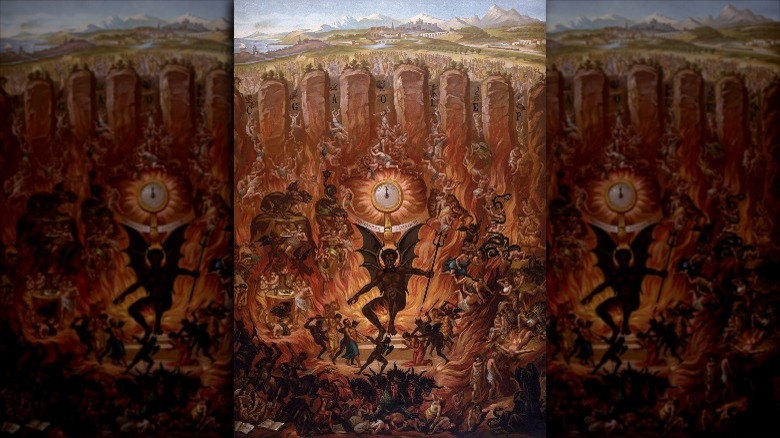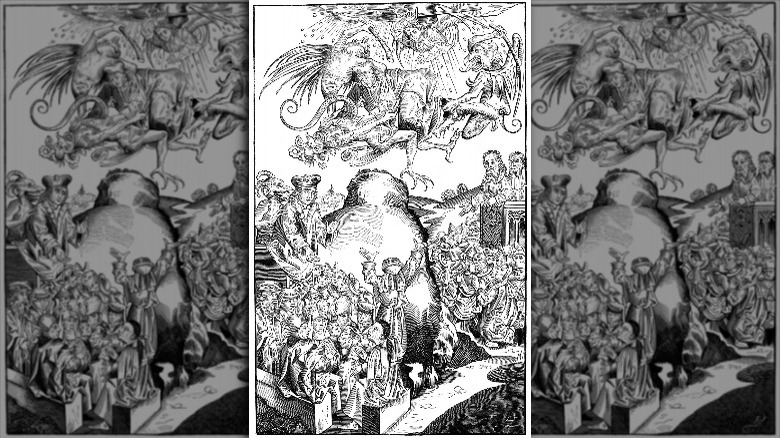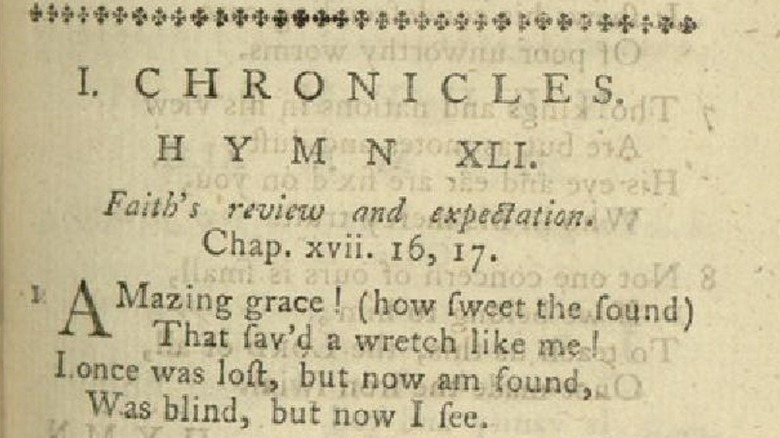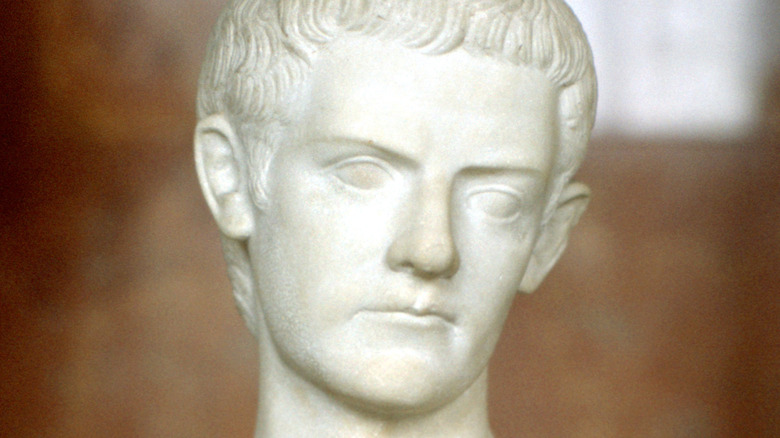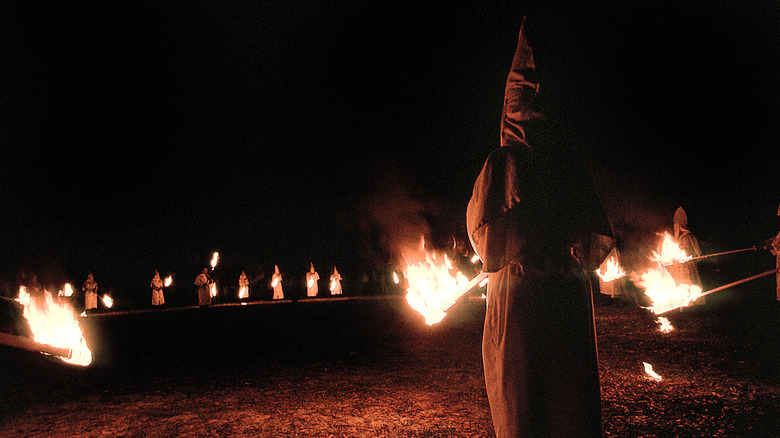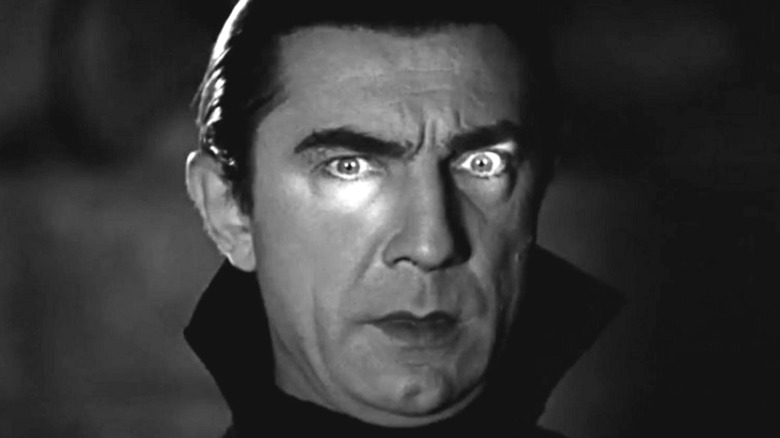
Here’s What The Bible Says About The Antichrist
Despite being presented as the word of God, the Christian Bible is often unfathomable, a fact that adds to its inherent mystery and has kept Christian scholars and theologians debating its exact meaning for millennia. On the surface, the primary function of the Bible is instructive. Among its many lessons, it reminds us of the central tenet of Christianity: We should all be good to one another. It’s a lesson worth learning, whether we personally have faith or not.
But the Bible is also a mirror in which humanity is reflected. Whether interpreted literally or figuratively, the Bible’s parables and prophecies can tell us much about ourselves and our collective future. The Bible’s most vivid prophecy comes at the end of the New Testament, in the Book of Revelation, which paints an apocalyptic vision of the end of the world before the second coming of Christ (via Britannica).
The book is notable for its fantastical supernatural imagery, including a dragon and a “beast rising out of the sea, with ten horns and seven heads, with ten diadems on its horns and blasphemous names on its heads,” (per Bible Gateway). The latter wages war against God’s saints and takes authority over all the people of Earth. For many Christians, this creature is referred to by a name: the Antichrist.
What is the Antichrist?
Though many associate the term “Antichrist” with the Book of Revelation, the word is not found there. Rather, it is found in the Epistles of John, where it is used four times, beginning with the following passage:
“Children, it is the last hour, and as you have heard that antichrist is coming, so now many antichrists have come. Therefore we know that it is the last hour,” reads 1 John 2:18 (per Bible Gateway).
The Epistles of John also refers to the “spirit of the antichrist” in 1 John 4:3, which believers have since interpreted as a reference to a figure opposing Christ in all things. Per The Conversion, if Christ is the perfectly good Son of God, then the Antichrist is the “perfectly evil” Son of Satan – or the devil – who looks to deceive humanity in his mission to conquer the Earth. As such, many theologians have also come to interpret the following passage about “the man of lawlessness” as referring to the Antichrist:
“Let no one deceive you in any way. For that day will not come, unless the rebellion comes first, and the man of lawlessness is revealed, the son of destruction, who opposes and exalts himself against every so-called god or object of worship, so that he takes his seat in the temple of God, proclaiming himself to be God,” reads 2 Thessalonians 2:3-4 (via Bible Gateway).
Prophecy and identifying the Antichrist
The figure of the Antichrist, or “man of lawlessness,” seems to marry well with the beast in the Book of Revelation who is “allowed to exercise authority for forty-two months” (via Bible Gateway). Understandably, those who believe in this work look to the world’s seats of power to identify the coming of the Antichrist.
Per The Conversation, the Antichrist functions as a warning for Christians to be on the watch for seductive evil. As such, many figures across the political spectrum have been labeled the Antichrist by those who warn against deception. Often, figures who claim some kind of religious authority within an otherwise secular political system receive the most scrutiny.
As noted by Christianity.com, Thessalonians in the New Testament describes the “man of lawlessness” as opposing “every so-called god.” As such, the passage may be interpreted as a warning against the coming of a ruling figure who wages war against “all religion”: Christianity, Islam, Hinduism, Judaism, and all other faiths.

The Truth About The Million-Year Rainstorm After The Triassic Era

The Truth About The Deadly Formosa Fun Coast Disaster
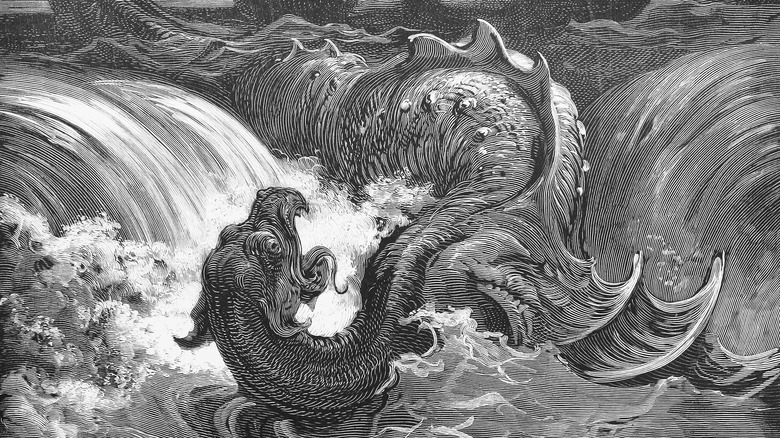
The Meaning Of The Leviathan In The Bible Explained
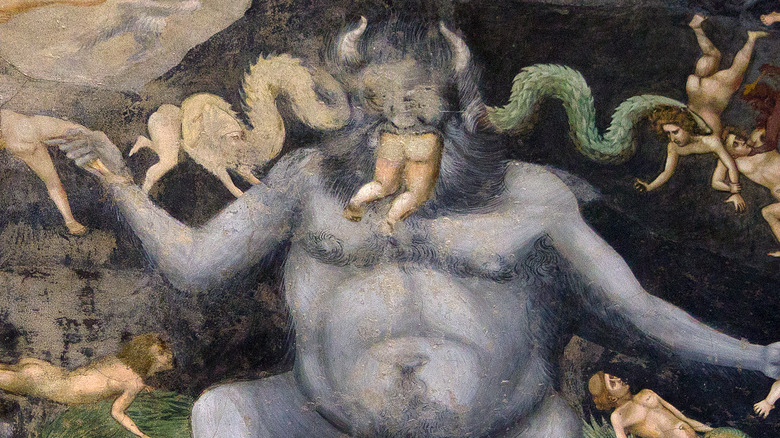
What Hell Really Looks Like In The Bible

The Tragic Death Of Leland And Jane Stanford's Son

The Wild True Story Of 'Crane Lady'

The Untold Truth Of The RMS Queen Mary

The Untold Truth Of The Rainbow Maniac

What A Facebook Ban Really Means For Trump

How Other Countries Teach American History
